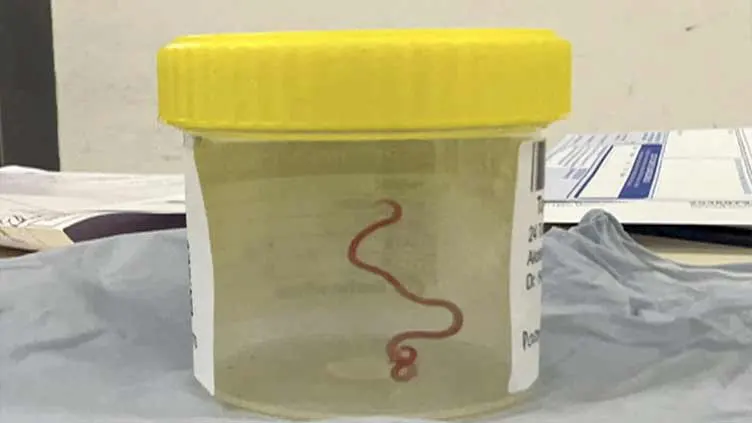A wriggling worm has been plucked from the brain of an Australian women by a neurosurgeon who was investigating her mystery symptoms. Surgeon HariPriyaBandi was performing a biopsy through a hole in the 64-year-old patient’s skull at Canberra Hospital last year when she used forceps to pull out the parasite, which measured 8 centimeters, or 3 inches.
“I just thought: ‘What is that? It doesn’t make any sense. But it’s alive and moving,’” Bandi was quoted Tuesday. “It continued to move with vigor. We all felt a bit sick,” Bandi added of her operating team.
The creature was the larva of an Australian native roundworm not previously known to be a human parasite, named Ophidascarisrobertsi. The worms are commonly found in carpet pythons. Bandi and Canberra infectious diseases physician SanjayaSenanayake are authors of an article about the extraordinary medical case published in the latest edition of the journal Emerging Infectious Diseases. Senanayake said he was on duty at the hospital in June last year when the worm was found.
“I got a call saying: ‘We’ve got a patient with an infection problem. We’ve just removed a live worm from this patient’s brain,’” Senanayake told Australian Broadcasting Corp.
The woman had been admitted to the hospital after experiencing forgetfulness and worsening depression over three months. Scans showed changes in her brain.
A year earlier, she had been admitted to her local hospital in southeast New South Wales state with symptoms including abdominal pain, diarrhea, a dry cough and night sweats.
Senanayake said the brain biopsy was expected to reveal a cancer or an abscess.—INP










